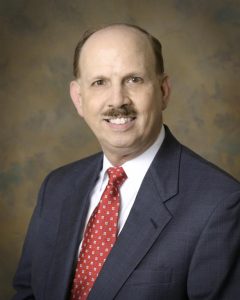 By George F. Indest III, J.D., M.P.A., LL.M., Board Certified by The Florida Bar in Health Law
By George F. Indest III, J.D., M.P.A., LL.M., Board Certified by The Florida Bar in Health Law
Starting June 1, 2015, Medicare Part D will no longer reimburse patients or pharmacies for prescriptions unless the dentist opts in and enrolls in Medicare, or opts out and enters into a private contract with the patient. This measure is part of a rule finalized by the Centers for Medicare and Medicaid Services (CMS). The purpose of the rule is to assist CMS in cracking down on doctors, dentists and other health care providers that are improperly prescribing drugs to Medicare patients.
Medicare Part D plans provide supplemental optional coverage for prescription medication used in dentistry, are administered by private health plans and are paid for by way of premiums. As a dentist, if you have patients with Medicare Part D, you need to choose whether to enroll as a Medicare provider or to opt out. Click here to read the final rule from CMS.
Specifics of the New Rule.
Dentists have until June 2015 to either enroll in Medicare or formally opt out. When a dentist enrolls, the government verifies his or her professional license and credentials, and checks his or her criminal history. In addition, the final rule expands rewards and incentive programs focusing on participation in activities that promote improved health, efficient use of health-care resources and preventing injuries and illness.
One new stipulation is that the federal government has the authority to expel physicians from Medicare if found to be prescribing drugs in an abusive manner or in violation of Medicare rules. In addition, CMS will be able to terminate a dentist’s Medicare enrollment if his or her Drug Enforcement Administration (DEA) certification has been revoked, or if the state licensing board has stripped his or her authority to prescribe drugs.
To read more on how abusive prescribing patterns will be determined, click here.
Enrolling Versus Opting Out.
If you enroll in Medicare Part D as a treating provider, then you are going to be subject to increased oversight and regulations, including:
– Fraud investigations;
– The minimum patient record retention increases from four to five years;
– You must be careful when denying services to Medicare recipients;
– You can’t charge Medicare for missed appointments; and
– You may have a percentage of your Medicare reimbursement withheld beginning next year if you don’t have electronic health records (EHRs).
On the other hand, if you opt out of part of Medicare, then you opt out of other parts as well, which may lead to a loss in revenue and disgruntled patients.
Examine Your Practice and Make Your Own Decision.
Your decision to enroll in or opt out of Medicare should be determined by the types of patients you treat and the services you provide. If your practice consists of patients under the age of 65, you may be unaffected by this rule. However, if you practice in an area with an older population, Medicare coverage is more likely to be part of your practice. The important point is to understand how it may or may not affect your practice’s bottom line. If you need some guidance or have questions, call an attorney experienced in representing dentists.
Comments?
Will this final rule affect you? If so, how? Please leave any thoughtful comments below.
Consult With An Attorney Experienced in the Representation of Dentists.
We routinely provide deposition coverage to dentists, dental hygienists and other health professionals being deposed in criminal cases, negligence cases, civil cases or disciplinary cases involving other health professionals.
The lawyers of The Health Law Firm are experienced in both formal and informal administrative hearings and in representing dentists and dental hygienists and other health professionals in investigations and at Board of Dentistry hearings. Call now or visit our website www.TheHealthLawFirm.com.
About the Author: George F. Indest III, J.D., M.P.A., LL.M., is Board Certified by The Florida Bar in Health Law. He is the President and Managing Partner of The Health Law Firm, which has a national practice. Its main office is in the Orlando, Florida, area. www.TheHealthLawFirm.com The Health Law Firm, 1101 Douglas Ave., Altamonte Springs, FL 32714, Phone: (407) 331-6620.
The Health Law Firm” is a registered fictitious business name of George F. Indest III, P.A. – The Health Law Firm, a Florida professional service corporation, since 1999.
Copyright © 1999-2015 The Health Law Firm. All rights reserved.


